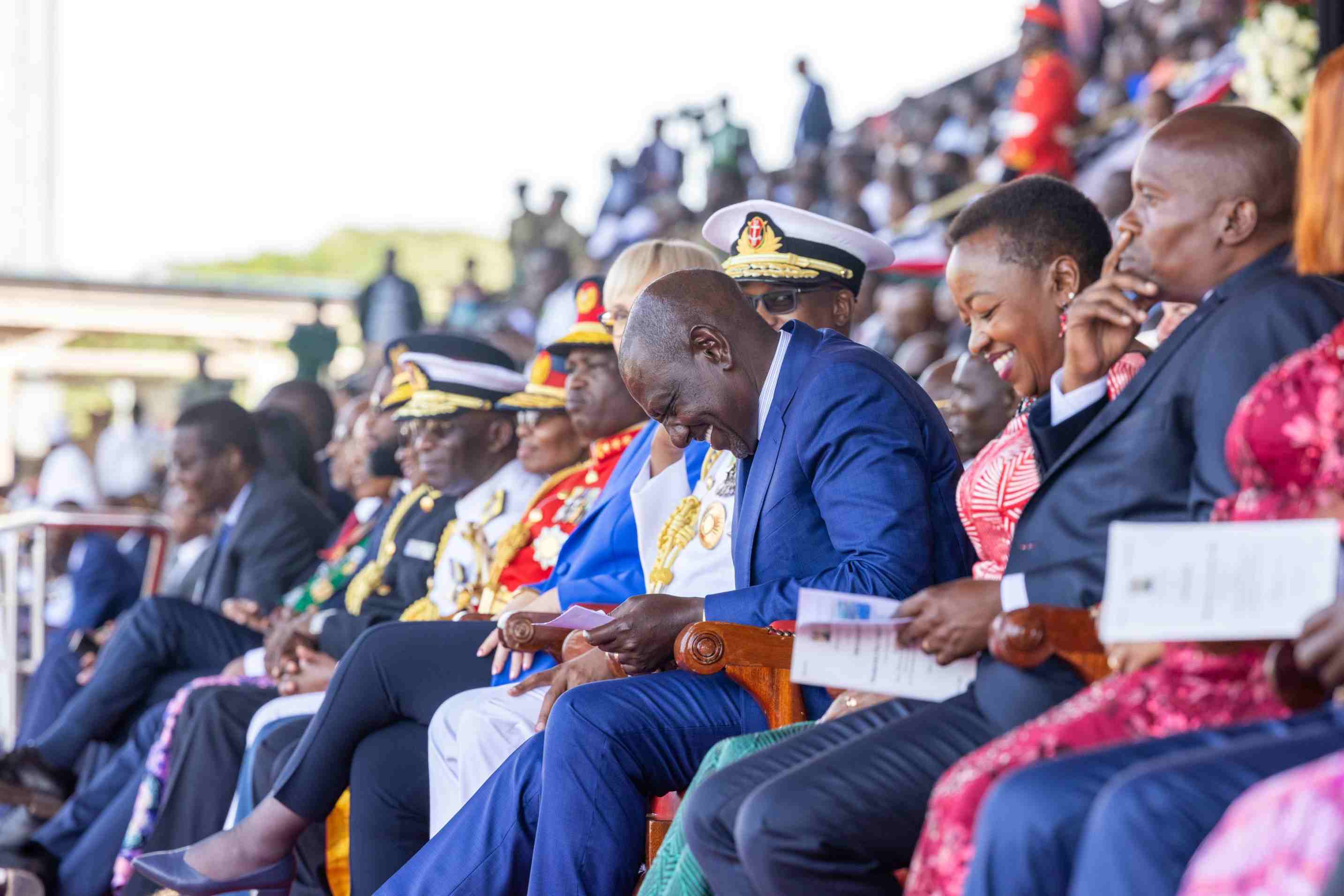Ruto proposes Sh5 million mortgage loans for housing levy payers

Speaking during the 62nd Madaraka Day celebrations in Homa Bay, Ruto said the loans would be available to both first-time homebuyers and those already servicing mortgages.
President William Ruto has announced a plan to introduce a law that will allow Kenyans paying the housing levy to access mortgage loans of up to Sh5 million at low interest rates.
Speaking during the 62nd Madaraka Day celebrations in Homa Bay, Ruto said the loans would be available to both first-time homebuyers and those already servicing mortgages.
"I am pleased to announce today that I shall be proposing to Parliament a reform to the law that will allow any contributor to access an affordable home loan of Sh5 million at a single-digit interest rate, applicable to any housing unit in the market," he said.
Ruto added that the facility will also help contributors offset existing home loans and reduce their financial burden.
"This facility will also enable contributors to offset existing mortgages, offering greater flexibility in their housing journey, allowing many to significantly ease their home financing costs," he stated.
This comes days after 1,080 beneficiaries received keys to their new homes at Mukuru Kwa Reuben in Nairobi under a rent-to-own plan expected to span up to 30 years.
Speaking during Madaraka Day celebrations in Homa Bay, Ruto also announced the handover of 110 new units at the Boma Yangu housing estate in the county.
The President’s address comes amid continued implementation of the housing levy, which took effect on March 19, 2024.
The law requires a 1.5 per cent deduction from an employee’s gross salary and a matching amount from the employer.
To cushion contributors, the government has introduced a housing tax relief of 15 per cent of the amount deducted, capped at Sh108,000 annually, or Sh9,000 per month.
Since late 2024, deductions for the Housing Levy, Social Health Insurance Fund (SHIF), and post-retirement medical schemes have been treated as deductible expenses when calculating taxable income.
This adjustment means these deductions are subtracted from a worker’s gross salary before Pay-As-You-Earn (PAYE) is applied, lowering the total tax burden.
The change has eased pressure on workers’ pay, addressing previous concerns that employees were being taxed twice on the same income.
